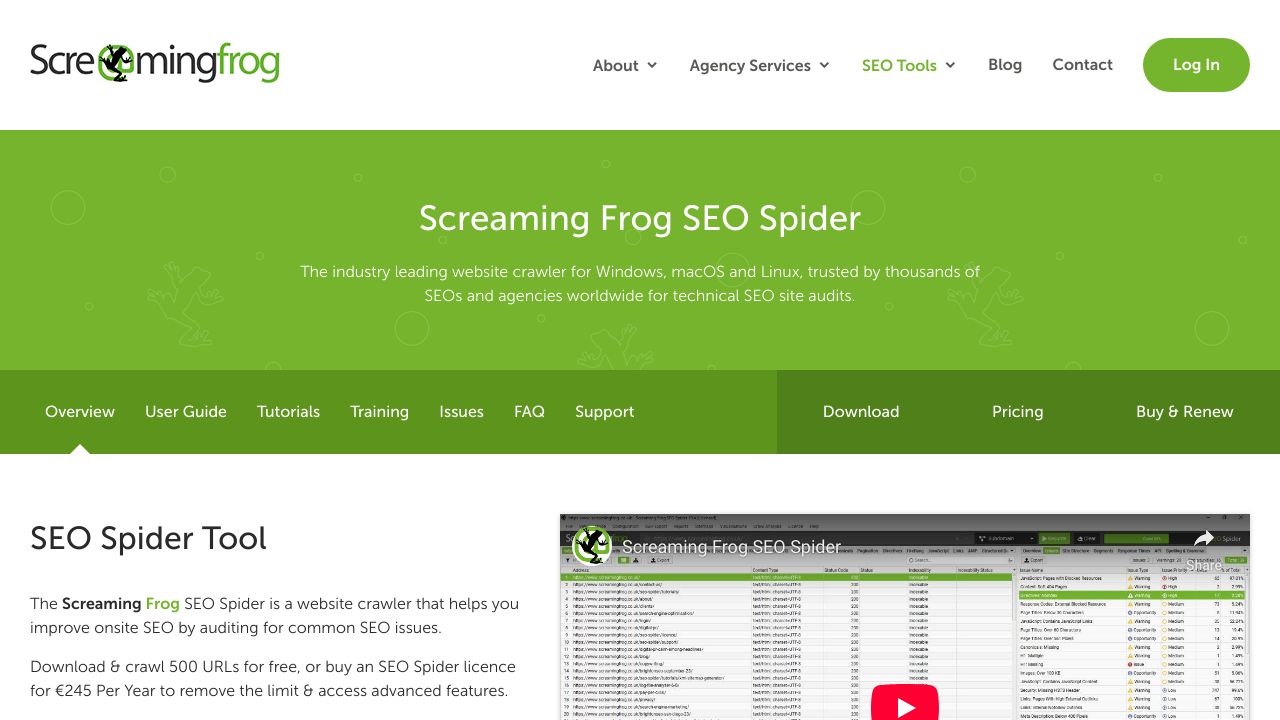WordPress powers over 40% of all websites, but managing SEO at scale remains a challenge for technical SEOs. That's where ai tools for seo come in, transforming how we approach auditing, gap analysis, and content optimization.
I've been using AI-powered SEO tools for the past two years, and the efficiency gains are remarkable. What used to take hours of manual analysis now happens in minutes, with insights that often surpass human-only approaches.
Why AI Tools for SEO Are Essential in 2025

The SEO landscape has become incredibly complex. Google processes over 8.5 billion searches daily, and ranking factors continue to evolve. AI tools help us keep pace by automating data analysis, identifying patterns humans might miss, and providing actionable recommendations at scale.
Modern AI SEO tools can process massive datasets in seconds. They analyze competitor strategies, identify content gaps, and predict performance outcomes with increasing accuracy. For WordPress sites specifically, these tools integrate seamlessly with existing workflows.
WordPress-Specific SEO Challenges AI Can Solve

WordPress sites face unique SEO challenges that AI tools address effectively:
- Plugin conflicts affecting site speed and crawlability
- Duplicate content from category and tag pages
- Theme-related technical SEO issues
- Large content libraries requiring systematic optimization
- Complex site architectures with multiple post types
AI tools excel at identifying these issues across thousands of pages simultaneously, something that would take weeks to do manually.
Essential AI-Powered SEO Audit Tools for WordPress
Technical SEO audits form the foundation of any optimization strategy. AI-powered tools have revolutionized this process, making comprehensive audits faster and more accurate than ever before.
Setting Up AI-Powered Site Crawling and Analysis
Screaming Frog SEO Spider now includes AI-powered analysis features that automatically categorize issues by priority. The tool's machine learning algorithms identify patterns in crawl data that indicate potential ranking problems.
To set up effective crawling:
- Configure custom extraction rules for WordPress-specific elements
- Set up automated scheduling for regular site audits
- Enable JavaScript rendering for dynamic content analysis
- Connect Google Analytics and Search Console for enhanced insights
Sitebulb takes this further with visual site architecture analysis and AI-driven recommendations. Its hint system uses machine learning to prioritize fixes based on potential impact.
Automated Technical SEO Issue Detection

AI tools excel at pattern recognition, making them perfect for identifying technical SEO issues. They can detect subtle problems like:
- Inconsistent internal linking patterns
- Page speed bottlenecks across different device types
- Schema markup errors and opportunities
- Crawl budget waste from low-value pages
- Mobile usability issues affecting Core Web Vitals
These tools don't just identify problems; they predict the potential impact of fixes. This helps prioritize your optimization efforts for maximum ROI.
WordPress Plugin Integration for Continuous Monitoring
Several WordPress plugins now incorporate AI features for ongoing SEO monitoring. RankMath includes AI-powered content analysis that evaluates semantic relevance and suggests improvements in real-time.
AIOSEO offers AI-driven title and meta description optimization, analyzing top-ranking pages to suggest improvements. The plugin's machine learning algorithms adapt recommendations based on your site's performance data.
For continuous monitoring, set up automated alerts for critical issues like broken links, missing meta tags, or sudden drops in page speed scores.
AI-Driven SEO Gap Analysis: Finding Opportunities
Gap analysis reveals untapped opportunities that competitors might be missing. AI tools make this process incredibly sophisticated, analyzing millions of data points to identify profitable niches.
Competitor Content Gap Analysis with AI
AI-powered tools like Ahrefs and SEMrush use machine learning to identify content gaps by analyzing competitor keyword portfolios. They don't just show missing keywords; they predict which gaps offer the best opportunities based on search volume, competition, and your site's authority.
The process involves:
- Identifying your top 5-10 competitors automatically
- Analyzing their content themes and topic clusters
- Finding keywords they rank for that you don't
- Scoring opportunities based on difficulty and potential traffic
- Suggesting content formats that perform best for each gap
Keyword Gap Analysis Using Machine Learning
Modern keyword research goes beyond search volume. AI tools analyze search intent, seasonal trends, and user behavior patterns to identify high-value opportunities.
Machine learning algorithms can predict which keywords are likely to grow in popularity, helping you create content ahead of trends. They also identify semantic relationships between keywords that humans might miss.
| Analysis Type | Traditional Method | AI-Enhanced Method |
|---|---|---|
| Keyword Discovery | Manual brainstorming | Semantic clustering and prediction |
| Intent Analysis | Manual categorization | Automated intent classification |
| Opportunity Scoring | Basic metrics | Multi-factor predictive scoring |
| Trend Identification | Historical data review | Predictive trend analysis |
Technical SEO Gap Identification
AI tools can compare your WordPress site's technical performance against competitors in ways that weren't possible before. They analyze site architecture, page speed, mobile optimization, and schema implementation to identify competitive advantages.

These tools often reveal that competitors aren't as technically optimized as they appear, presenting opportunities to gain rankings through superior technical SEO.
AI Content Scoring and Optimization in WordPress
Content scoring has evolved from simple keyword density checks to sophisticated semantic analysis. AI tools now evaluate content quality, relevance, and optimization potential with remarkable accuracy.
Real-Time Content Scoring During Writing
WordPress plugins like Yoast SEO now include AI-powered content analysis that provides real-time feedback as you write. These tools analyze readability, keyword optimization, and semantic relevance simultaneously.
The scoring considers multiple factors:
- Semantic keyword usage and distribution
- Content structure and heading optimization
- Internal linking opportunities
- Readability and user engagement signals
- Competitive content analysis for the target keyword
Semantic SEO Analysis and Entity Optimization
Google's understanding of content has become incredibly sophisticated. AI tools help optimize for semantic search by identifying related entities, concepts, and topics that should be included in your content.
Tools like MarketMuse use natural language processing to analyze top-ranking content and suggest semantic improvements. They identify topic gaps and recommend specific entities to include for better topical authority.
Content Performance Prediction and Optimization
Perhaps most impressively, AI tools can now predict how content will perform before you publish it. They analyze factors like content depth, semantic coverage, and competitive landscape to forecast ranking potential.
This predictive capability helps you optimize content for maximum impact before investing time in promotion and link building.
WordPress-Specific AI SEO Tool Implementation
Implementing AI SEO tools in WordPress requires careful planning and configuration. The goal is creating a seamless workflow that enhances your existing processes without adding complexity.
Plugin Installation and Configuration Guide

Start with one primary SEO plugin that includes AI features. I recommend beginning with either RankMath or AIOSEO, as both offer comprehensive AI-powered analysis without overwhelming beginners.
Configuration steps:
- Connect Google Search Console and Analytics for data integration
- Configure AI content analysis settings for your content type
- Set up automated monitoring for critical SEO metrics
- Enable real-time suggestions in the WordPress editor
- Configure notification settings for important issues
API Integration for Advanced AI Tools
Many powerful AI SEO tools offer APIs that can be integrated directly into WordPress. This allows you to access advanced features without leaving your content management workflow.
Popular integrations include connecting keyword research tools, content optimization platforms, and technical audit tools directly to your WordPress dashboard.
Workflow Automation Setup
Automation is where AI tools really shine. Set up workflows that automatically monitor your site's SEO health, alert you to issues, and even suggest content improvements based on performance data.
Tools like Zapier can connect your AI SEO tools to WordPress, creating automated workflows that save hours of manual work each week.
Advanced AI SEO Strategies and Best Practices
Once you've mastered the basics, advanced AI SEO strategies can provide significant competitive advantages. These techniques require more setup but offer substantial returns.
Creating Custom AI SEO Dashboards
Combine data from multiple AI tools into custom dashboards that provide comprehensive SEO insights. Tools like Google Data Studio can integrate with various AI SEO platforms to create unified reporting.
Your dashboard should include metrics from technical audits, content performance, keyword rankings, and competitive analysis all in one view.
AI-Powered SEO Reporting and Client Communication
AI tools can generate intelligent reports that explain SEO performance in plain language. These reports identify trends, highlight opportunities, and provide actionable recommendations without requiring deep SEO knowledge to understand.
Scaling AI SEO Across Multiple WordPress Sites
For agencies or businesses managing multiple WordPress sites, AI tools enable scalable SEO management. Centralized dashboards can monitor dozens of sites simultaneously, alerting you to issues and opportunities across your entire portfolio.
Measuring Success and ROI of AI SEO Tools
Implementing AI tools for SEO requires investment in both time and money. Measuring their effectiveness ensures you're getting proper returns and helps justify continued investment.
Key Performance Indicators for AI SEO Success
Track these metrics to measure AI SEO tool effectiveness:
- Time saved on routine SEO tasks
- Increase in organic traffic and rankings
- Improvement in technical SEO scores
- Content performance improvements
- Competitive advantage gained through gap analysis
Before and After Analysis Techniques
Establish baseline measurements before implementing AI tools. Track organic traffic, keyword rankings, technical SEO scores, and content performance metrics. Compare these against post-implementation results to quantify improvements.
Most AI SEO tools provide historical data analysis, making it easier to demonstrate their impact over time.
Cost-Benefit Analysis of AI SEO Tool Investment
Calculate ROI by comparing tool costs against time saved and performance improvements. Consider both direct benefits (increased traffic and conversions) and indirect benefits (improved efficiency and competitive intelligence).
In my experience, most AI SEO tools pay for themselves within 3-6 months through improved efficiency alone. The performance gains often provide additional returns that justify continued investment.
AI tools for SEO have transformed how we approach WordPress optimization. They make complex analysis accessible, automate routine tasks, and provide insights that drive real results. Start with one or two tools, master their capabilities, then expand your toolkit as your needs grow.

